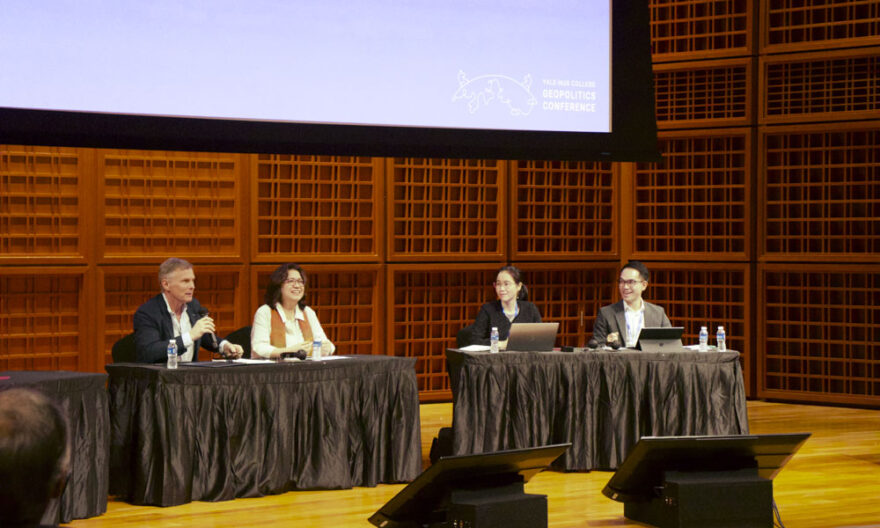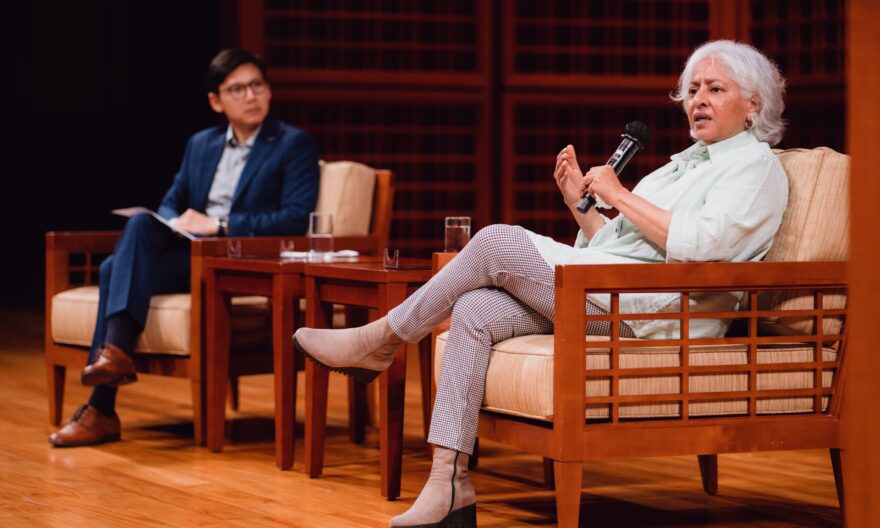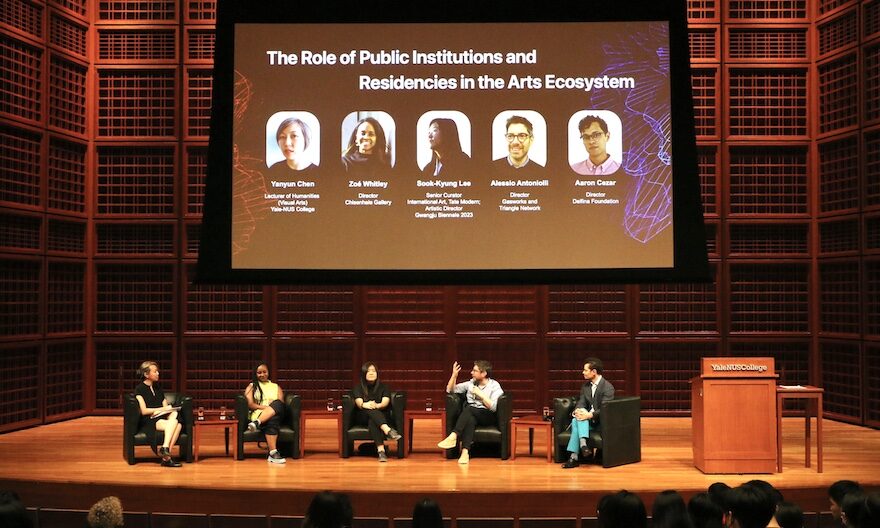New Andreas Teoh Contemporary Asian Art Programme promotes study and appreciation of Asian art
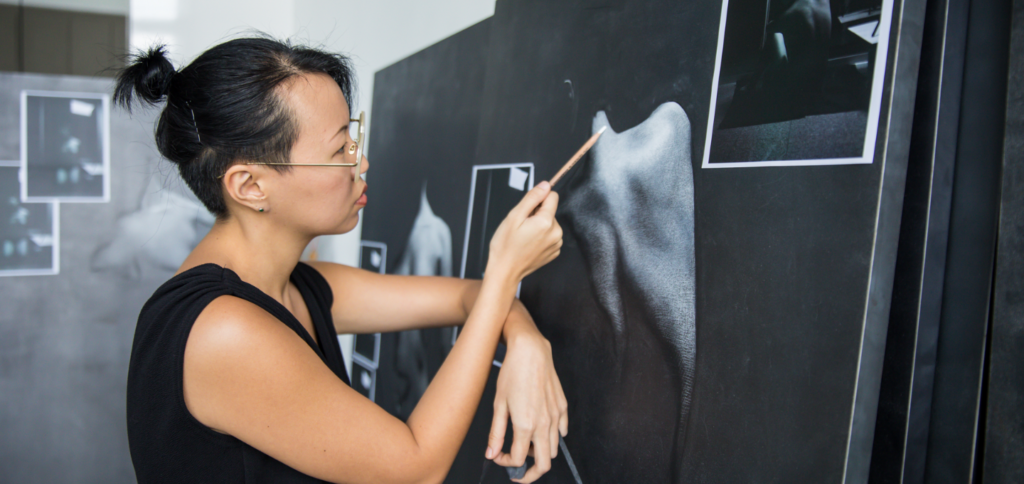 Dr Yanyun Chen is the inaugural recipient of the fellowship supported by the Andreas Teoh Contemporary Asian Art Programme. Image provided by Dr Yanyun Chen.
Dr Yanyun Chen is the inaugural recipient of the fellowship supported by the Andreas Teoh Contemporary Asian Art Programme. Image provided by Dr Yanyun Chen.
Dr Yanyun Chen, an award-winning Singaporean visual artist and Lecturer of Humanities (Visual Arts) at Yale-NUS College, draws inspiration from personal experiences, regional philosophical readings, and Asian cultural traditions as counter-points to dominant art narratives and methods in her pedagogical and artistic practices.
Thanks to the generosity of Dr Andreas Teoh, an avid patron and collector of contemporary art, Dr Chen’s work to advance the study and appreciation of contemporary Asian art will now be supported as she becomes the inaugural recipient of a fellowship under the newly launched Andreas Teoh Contemporary Asian Art Programme at Yale-NUS College. The programme reflects Dr Teoh’s desire to support research and insights into Asian history, and its influences on global contemporary art.
Dr Teoh’s longstanding patronage of the arts as a committee member of the Asia Society Museum, New York, and the Tate Modern, London, deepened his passion for contemporary Asian art and he was invited to join the steering committee of the inaugural Asia Society Triennial in New York. These experiences led him to form the Institutum, Singapore, a non-profit organisation that aims to draw narratives between communities and artists from different parts of the world, linking them and demonstrating that art ultimately draws from a global perspective and transcends borders. To this end, the Insitutum has embarked on a residency programme with Gasworks, London, for Southeast Asian artists to allow them to broaden their networks and audience.
In addition to a fellowship, the Andreas Teoh Contemporary Asian Art Programme will support teaching and research in contemporary Asian art at the College, grounded in the multi-layered history of the region and its relationship to the arts. It will also engage the College community and members of the public in active discussions on contemporary Asian art through an annual lecture featuring eminent artists, scholars and curators.
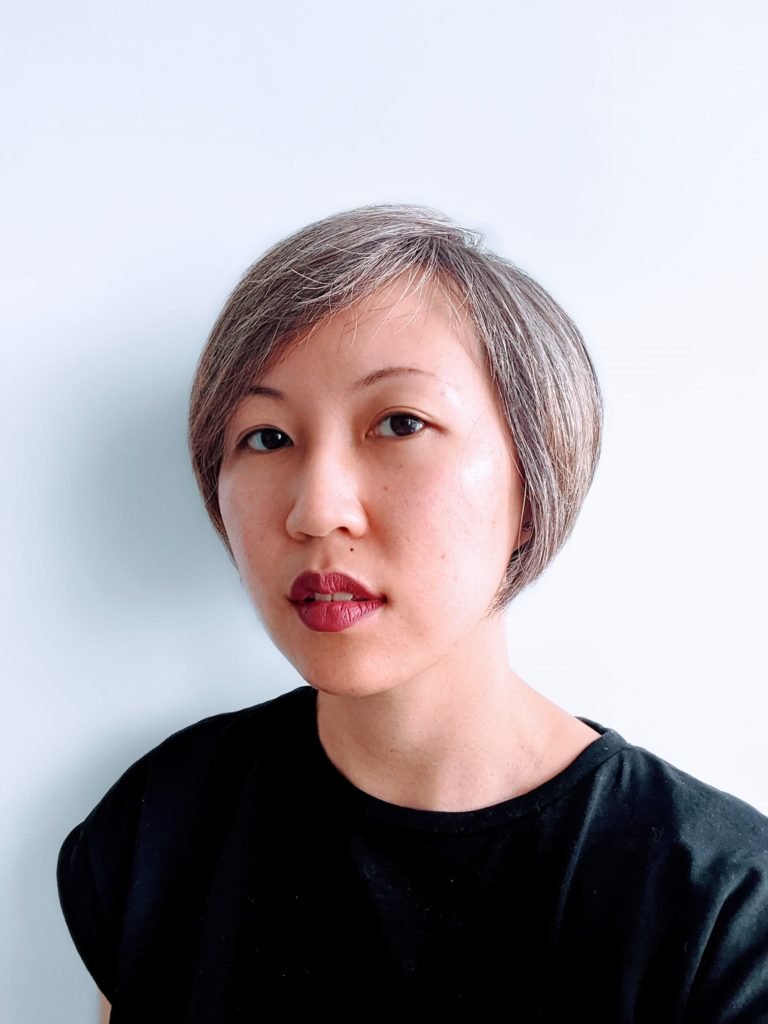 Dr Chen is the inaugural recipient of the fellowship supported by the Andreas Teoh Contemporary Asian Art Programme, which aims to support the teaching and research in modern or contemporary Asian art at Yale-NUS College. Image provided by Dr Yanyun Chen.
Dr Chen is the inaugural recipient of the fellowship supported by the Andreas Teoh Contemporary Asian Art Programme, which aims to support the teaching and research in modern or contemporary Asian art at Yale-NUS College. Image provided by Dr Yanyun Chen.
For Dr Chen, the fellowship represents increased possibilities for developing her practice. “The programme offers financial support, new networks, and opportunities for exchange with a larger global arts community. I look forward to finding out how it will influence my work, pedagogy, and thought in a few years’ time,” she said.
It also presents the opportunity to make a lasting difference to how art is viewed, understood and interpreted by, for, and from Asia. Dr Chen noted that it is “important to recognise the need to consider Asian stories seriously, to acknowledge the importance of alternative modes of research and practice-based approaches in academia, and to impart artistic knowledge and cultural sensitivities to our students.”
As an accomplished art practitioner who researches cultural wounds, dowry traditions, hereditary scars, philosophies of nudities, and etymology, Dr Chen is well-placed to advance the understanding of contemporary Asian art.
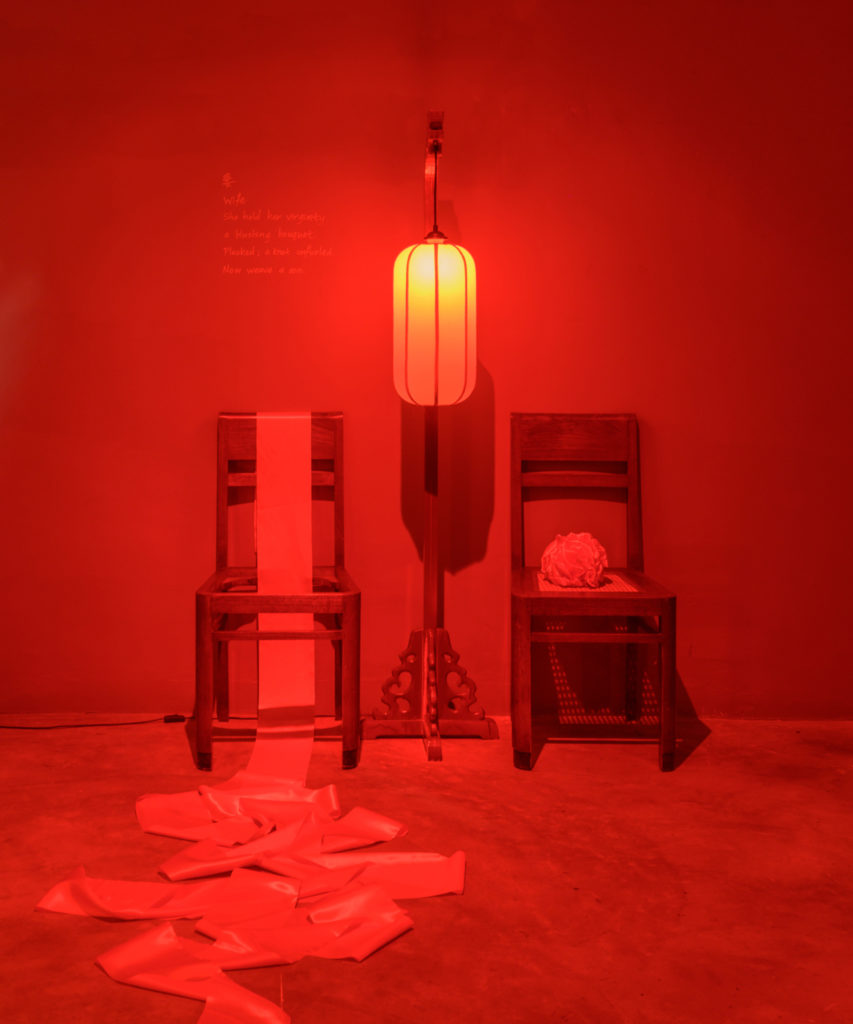 ‘Stories of a Woman and Her Dowry’ comprises four chapters and a prologue, each chapter represents the roles and life stages a woman is expected to occupy within the Chinese-Hainanese-Cantonese milieu of her family. Image provided by Dr Yanyun Chen.
‘Stories of a Woman and Her Dowry’ comprises four chapters and a prologue, each chapter represents the roles and life stages a woman is expected to occupy within the Chinese-Hainanese-Cantonese milieu of her family. Image provided by Dr Yanyun Chen.
“The dearth of academic research in contemporary Southeast Asian art spaces has led to art being undermined, misunderstood, and underestimated in our society. Knowledge is a living beast. Witnessing, recording, studying, understanding, thinking, archiving, making, and working with what is currently being created are what gives breath to the research process and approach towards the arts. It is my hope that I can make a small contribution to this field,” Dr Chen said.
The fellowship will enable her to continue her research and practice, as well as create new opportunities for faculty and students at the College to interact with and learn from prominent names in the area of contemporary Asian Art as well as the global contemporary art community.
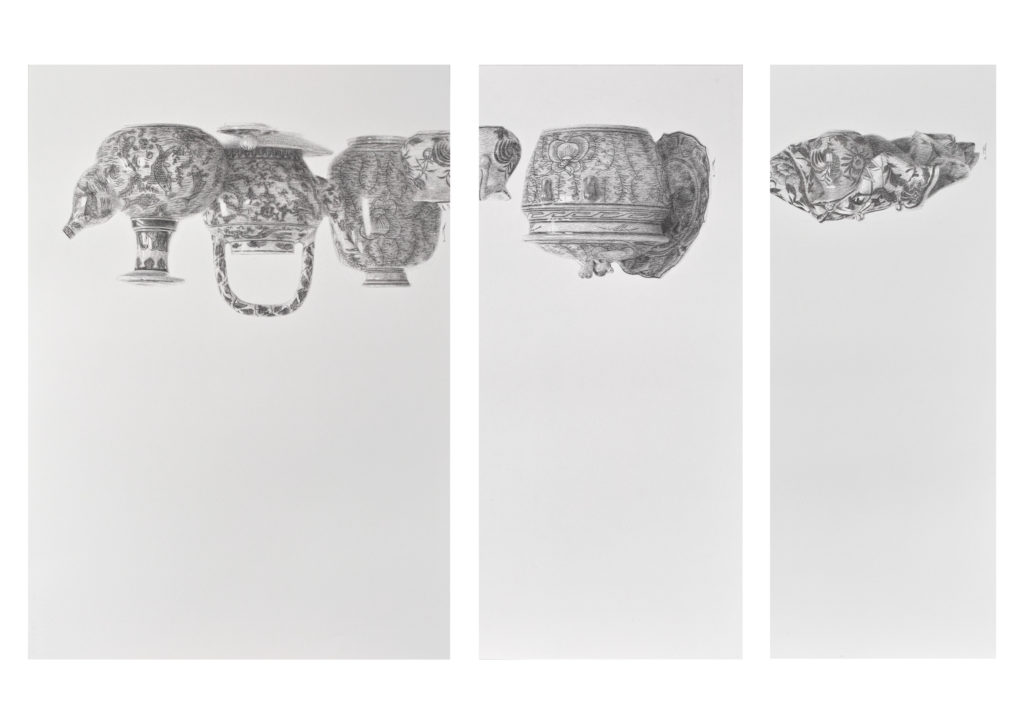 Dr Chen’s ‘Hills Like White Elephants 悬念 (I) (II) (III)’ portrays tensions between family identity and everyday conflict, based on Ernest Hemingway’s short story ‘Hills like White Elephants’. With the vase as a visual metaphor for feminine personhood, alongside the expectations of a family unit, the triptych belongs to each other, yet stands as individuals. The drawings are also a play on the artist’s name. The etymology of ‘Yan’彦 describes the patterned surfaces of cliff facades from the soil, rocks, and minerals of the earth, 悬崖花斑. It is also through our name—the act of naming—that we are bound to our families inseparably. Image provided by Dr Yanyun Chen.
Dr Chen’s ‘Hills Like White Elephants 悬念 (I) (II) (III)’ portrays tensions between family identity and everyday conflict, based on Ernest Hemingway’s short story ‘Hills like White Elephants’. With the vase as a visual metaphor for feminine personhood, alongside the expectations of a family unit, the triptych belongs to each other, yet stands as individuals. The drawings are also a play on the artist’s name. The etymology of ‘Yan’彦 describes the patterned surfaces of cliff facades from the soil, rocks, and minerals of the earth, 悬崖花斑. It is also through our name—the act of naming—that we are bound to our families inseparably. Image provided by Dr Yanyun Chen.
Creating such avenues to enhance the appreciation of art in the region and expand its horizons is the goal of the Andreas Teoh Contemporary Asian Art Programme.
Dr Teoh’s generosity in supporting the teaching and research of contemporary Asian Art in the College will similarly fulfil the mission of developing the arts on a global scale while remaining grounded in the unique culture and history of our region.

